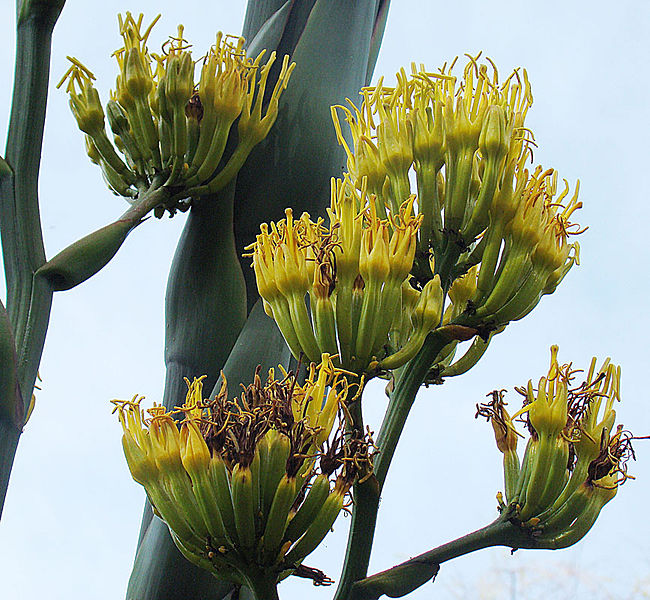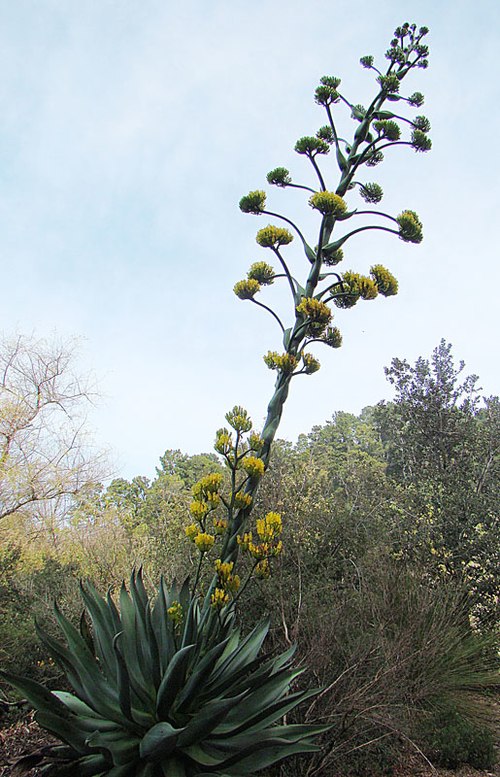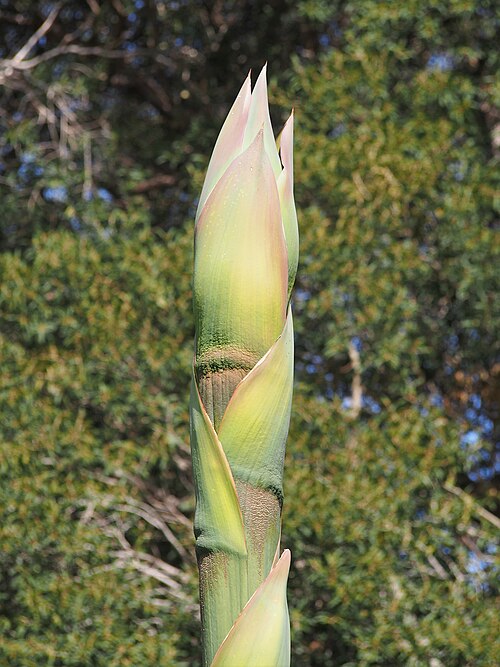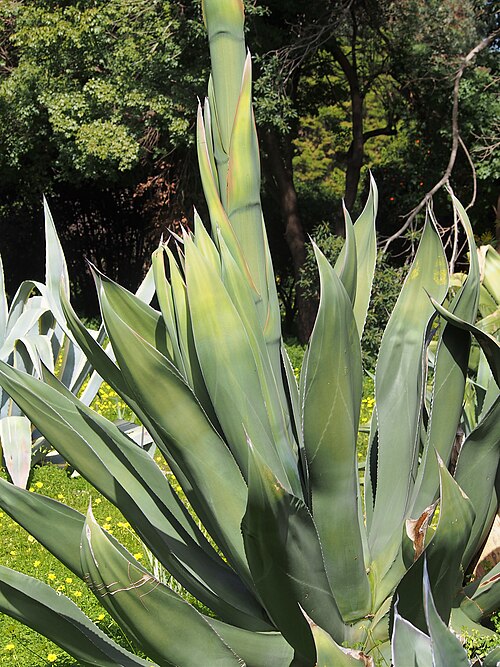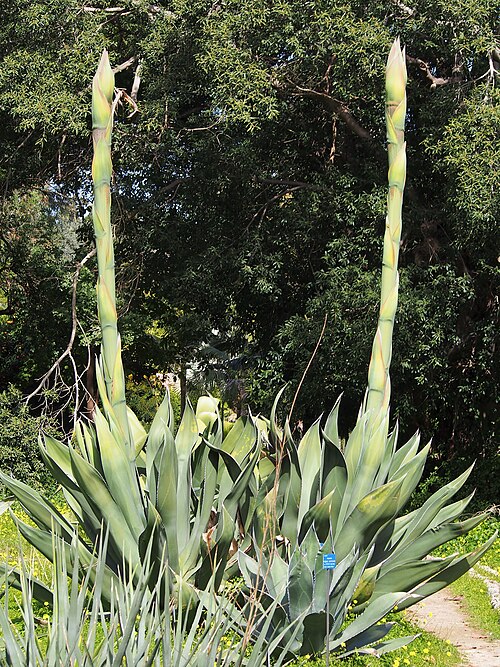Maguey: The Dramatic Drought-Buster Your Garden Didn’t Know It Needed
If you’re looking for a plant that makes a statement louder than your neighbor’s lawn flamingos, let me introduce you to maguey (Agave atrovirens). This isn’t your average garden-variety succulent – it’s the kind of plant that stops traffic and starts conversations.
What Exactly Is Maguey?
Maguey, scientifically known as Agave atrovirens, is a large succulent that hails from the mountainous regions of central Mexico. Think of it as nature’s sculpture: thick, sword-like leaves arranged in a perfect rosette that can grow impressively large over time. The leaves typically display beautiful blue-green to dark green coloring that adds a striking architectural element to any landscape.
Where Does It Come From?
This magnificent plant calls the Mexican Plateau and surrounding mountainous areas home, where it has adapted to tough conditions with rocky soils and irregular rainfall.
Why You Might Want to Grow Maguey
Here’s where maguey really shines in the garden world:
- Drought tolerance: Once established, this plant laughs in the face of water restrictions
- Architectural impact: Creates instant drama and serves as a stunning focal point
- Low maintenance: Perfect for busy gardeners or those who prefer a set it and forget it approach
- Pollinator magnet: When it eventually blooms (after many years), it produces spectacular flower spikes that attract bees, hummingbirds, and even bats
- Year-round interest: Maintains its striking appearance through all seasons
Perfect Garden Spots for Maguey
Maguey thrives in:
- Desert and xeriscape gardens
- Mediterranean-style landscapes
- Rock gardens
- Modern, minimalist garden designs
- Slope plantings where erosion control is needed
Growing Conditions: Keep It Simple
The beauty of maguey lies in its simplicity. This plant actually prefers to be a little neglected:
- Sunlight: Full sun is essential – at least 6 hours daily
- Soil: Well-draining is non-negotiable; sandy or rocky soils work great
- Water: Less is more – deep, infrequent watering once established
- Hardiness zones: Suitable for USDA zones 8-11, with protection needed in zone 8
Planting and Care Tips
Getting started with maguey is refreshingly straightforward:
- Plant in spring when frost danger has passed
- Dig a hole wider than deep to accommodate the root system
- Amend heavy clay soils with sand or gravel for drainage
- Water thoroughly after planting, then reduce frequency
- In colder zones, consider container growing so you can move plants indoors
- Remove any damaged or dead leaves by cutting close to the base
A Word About Native Alternatives
While maguey isn’t native to most of the United States, it’s not considered invasive either. However, if you’re passionate about supporting local ecosystems, consider these native alternatives depending on your region:
- Century plant (Agave americana) for the Southwest
- Yucca species for various regions
- Native cacti for desert areas
The Bottom Line
Maguey is like that reliable friend who looks great, doesn’t need much attention, and always delivers when it counts. If you’re ready to embrace drought-tolerant gardening with a plant that brings serious visual impact, maguey might just be your new garden hero. Just remember: good drainage is your best friend, and patience is a virtue – this beauty grows slowly but surely into a showstopper.
